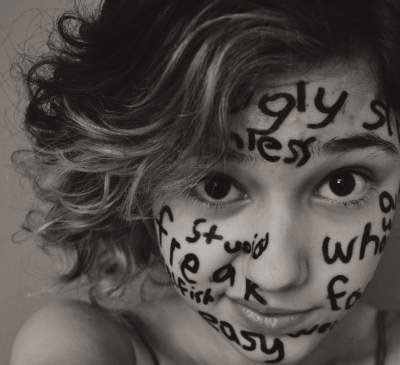All Nonfiction
- Bullying
- Books
- Academic
- Author Interviews
- Celebrity interviews
- College Articles
- College Essays
- Educator of the Year
- Heroes
- Interviews
- Memoir
- Personal Experience
- Sports
- Travel & Culture
All Opinions
- Bullying
- Current Events / Politics
- Discrimination
- Drugs / Alcohol / Smoking
- Entertainment / Celebrities
- Environment
- Love / Relationships
- Movies / Music / TV
- Pop Culture / Trends
- School / College
- Social Issues / Civics
- Spirituality / Religion
- Sports / Hobbies
All Hot Topics
- Bullying
- Community Service
- Environment
- Health
- Letters to the Editor
- Pride & Prejudice
- What Matters
- Back
Summer Guide
- Program Links
- Program Reviews
- Back
College Guide
- College Links
- College Reviews
- College Essays
- College Articles
- Back
Social Media VS Reality
Are you the same person online as you are in real life? Or would you be seen as a stranger to those who really know you? That’s what I’m writing about. Whether people are the same online as they are in real life, and different examples of it. I’ll start with my own personal experience. I’m definitely not the same person online as I am in real life. For starters, I don't even use my real name. My main social media is Twitter, I use a fake name and have never revealed the state I actually live in. The only thing that is true about me there, is my age. No one on there really knows anything personal about me, other than how many siblings or pets I have. I don’t like to share a lot of my personal life with people on social media, for my own comfort and safety.
I asked a few of my friends online if they were comfortable with telling me what the difference between their online persona and who they actually are is, they agreed. The friends I have asked so far are Koi, Ken, and Jo. Koi said “I’m a lot more bold on social media, I’m less hesitant to speak my mind on here.” Ken basically said the same thing saying, “It’s easier for me to say what I want without fear of judgment. I feel more comfortable and at home on social media than real life.” Jo said “It’s a lot easier for me to make friends online since I can talk to people I know have the same interests as me. I’m less scared to be myself when talking online.” I eventually got to asking my friend Victoria who also has social media, she said she is “a lot more willing to be herself on there especially with people she has the same interests as.”
Another example I would like to use is photoshop and the unrealistic beauty standards social media has created. Young girls and women who are on social media are bound to feel insecure at some point because they saw someone online who had a “better” body than them. 9 times out of 10 though, that’s not their actual body and they photoshopped it. When people, especially celebrities who have a lot of younger fans, photoshop their pictures and don’t say it’s photoshopped, it can contribute to the unrealistic beauty standards. My experience with this is K-Pop. When I first got into K-Pop in early 2019, I had seen almost all of the female idols being thinner than me. Being heavier than a 26 year old woman did not do good things for my mental health. I wasn’t “heavy” either, I was a healthy child. But being over a 100 pounds and seeing grown women who were under 100 pounds was really upsetting to me. Now that I’m a bit older, I’ve realized that a lot, if not all, of the idols I was comparing myself to, most likely suffered from an eating disorder, and I didn’t want that for myself, even if I was insecure when I compared myself to them. The K-Pop industry is a very fatphobic, colorist, racist thing. If the idols aren’t just skin and bones, with super pale white skin, they’re shamed for it.
Social media changes everything about the way things and people look. Even if social media is a fun thing to be on and you can talk to people who have the same interests as you, you must be careful. It is very easy for a single picture to ruin your self esteem in a matter of seconds.
A third example on social media vs real life is cyberbullying. 9 out of 10 cyber bullies would never say the stuff they say online, to someone's face. They feel protected by being able to hide behind a screen so they think they can say whatever they want. They could be someone’s best friend, their family, or just anyone out in the world, but a lot of the time, they’re too scared to say it out loud or they want attention from people online for saying evil things. I guess that could be who they truly are, they’re just too scared to actually act that way in real life.
I think these examples prove that most online are not the same as they are in real life, whether that’s a good or bad thing. I think social media needs to improve and so do the people who post on social media. I hope in the future, we, as a society, can come to realize the harmful effects of what we put online and how we can change as a whole.

Similar Articles
JOIN THE DISCUSSION
This article has 0 comments.

I'm a very opinionated 15 year old who is apart of the LGBTQ community who loves writing about serious issues in our world